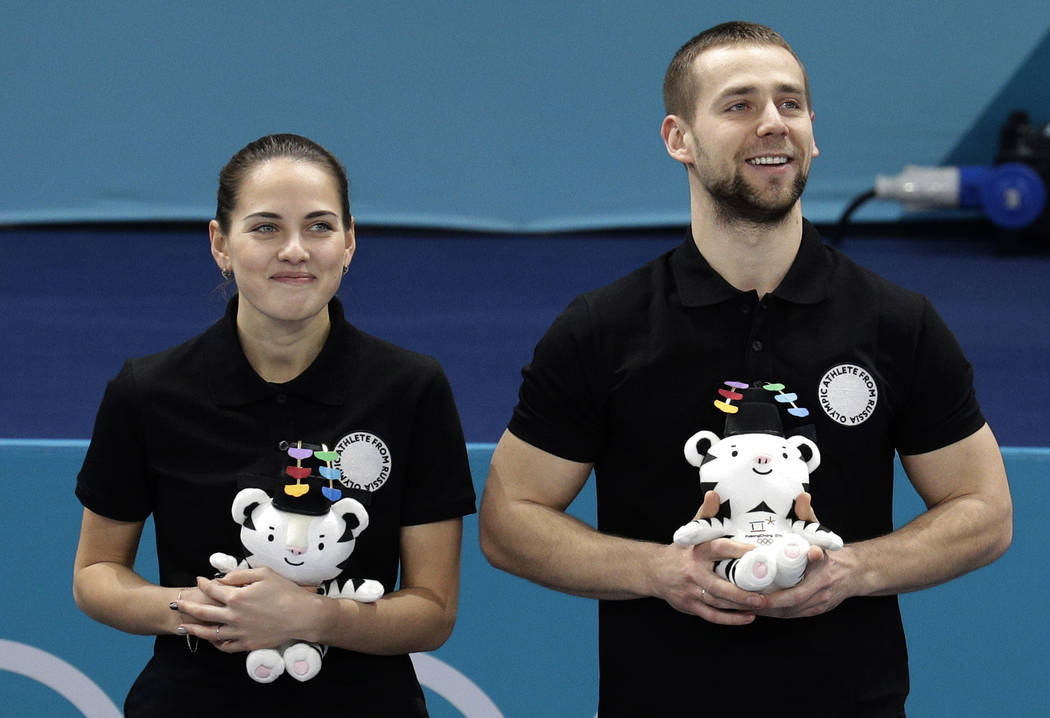Russian Olympic curler to return medal over failed drug test

GANGNEUNG, South Korea — Russian curler Alexander Krushelnitsky will give back his Olympic bronze medal after failing a drug test at the Pyeongchang Games, a spokeswoman for the Russian Curling Federation told state TV.
Krushelnitsky tested positive for the banned substance meldonium, which is believed to help blood circulation, after winning bronze in mixed doubles with his wife, Anastasia Bryzgalova.
“We have signed a statement that indeed he did have (meldonium in the sample) and as a result we will give the medal back,” Russian Curling Federation spokeswoman Valentina Parinova told state TV channel Russia 1.
Word comes as the International Olympic Committee is due to decide Saturday whether to formally reinstate the Russian team for the closing ceremony. Russia was banned from the Pyeongchang Olympics over widespread doping at the Sochi Games four years ago, but 168 Russians including Krushelnitsky were allowed by the IOC to compete as “Olympic Athletes from Russia” under the Olympic flag.
Krushelnitsky and Bryzgalova became the first Russians to compete at the Winter Olympics since the doping scandal at the Sochi Games when they competed in a preliminary-round game Feb. 8, the day before the opening ceremony in Pyeongchang.
A statement in Krushelnitsky’s name published by state news agency Tass said he accepted the substance had been found in his sample but that he had not doped intentionally.
“I accept a formal breach of the current anti-doping rules,” the statement read, adding that he will waive his right to a hearing at the Court of Arbitration for Sport because it would be “useless and senseless” for Krushelnitsky and Bryzgalova to fight the case.
However, the statement added that they consider themselves “clean athletes” and could contest any proceedings from the World Curling Federation, which could seek to have Krushelnitsky banned from the sport.
Russian curling officials have said they believe Krushelnitsky’s food or drink could have been spiked with meldonium either by Russia’s political enemies or by jealous Russian rival athletes who had not made the Olympic team.
CAS secretary general Matthieu Reeb told The Associated Press on Thursday morning that a hearing was still scheduled for 2 p.m. despite the Russian statements.
The Russian Curling Federation and the Russian delegation at the Pyeongchang Olympics could not immediately be reached for comment.